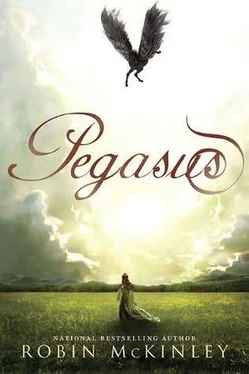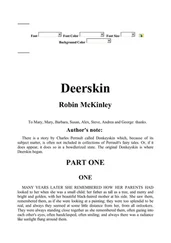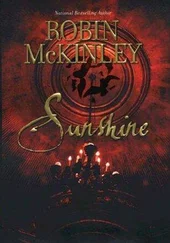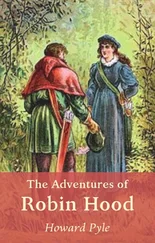But if the rocs as yet came no nearer, neither did they go away. It had been two generations since anyone from Balsinland had seen a roc to be sure it was a roc—and more than one had not been seen, even in the wild lands, since the Great Hunt.
Farley took his own company of the Queen’s Own to a different mountain, and Farley’s company had also seen a roc. The messages he sent made it clear that Farley’s roc was a third.
A little over a fortnight after Sylvi’s birthday party there was a terrific row—between Thowara and Danacor. Thowara had Poih and Oyry with him. Danacor had returned long enough to speak to his father in private, and was going out again at once. The pegasi were insisting on going with Danacor and Garren, who was accompanying his brother. Danacor was equally insisting that he did not want to risk them—as he put it. If they came, he said, they must not fly, on account of the norindours, on account of the rocs —in which case they should stay away altogether. They replied that this land—Balsinland—lay next to their own Rhiandomeer, and that they were the bound and sworn allies of the sons and daughters of Balsin, which meant that they were bound and sworn to protect Balsin’s land, or hadn’t Danacor read the treaty lately?
Eight Speakers were present to translate between the two humans and three pegasi—plus Lrrianay and Corone. Corone had sent a message to his daughter, requesting her presence, and so she had to go, however much she shrank from hearing—or not hearing—three humans and four pegasi talking to each other—arguing with each other.
At first she could hear nothing but the ordinary murmur of human voices—the ordinary murmur that was to her no longer ordinary—saying the sort of courtly-negotiation things that typically made her struggle to stay awake. Even in this case the orotund flow of the Speakers’ voices—they spoke in a kind of overlapping chant, like a part-song—began to make her feel sleepy. Perhaps this relaxed her concentration till she began to pick out the three separate strands of the conversation: the humans, the Speakers—and the pegasi. She could not hear precisely what the pegasi said, but she felt she could not hear them as one might not be able to hear a lute if a huge drum was thundering away beside it. She was hearing the strange singing rhythm of the pegasi silent-speech, and she heard it because it was so different from the rhythms of human speech. She could hear what Danacor said because he was accustomed to addressing crowds, and because when the king’s heir or his brother spoke, the other humans fell silent. When a pegasus spoke, a magician, or more than one, spoke at the same time, translating; sometimes a third or fourth magician broke in to add something. Sylvi began to wake up again, and listen hard. And she became uneasily certain that the magicians’ translation was less than perfect. By accident or incapacity? Or by design?
I must tell my father, she thought. Her thought in his private office, with Lord Cral, before the news of the rocs had arrived, had been put away in the ensuing uproar; and she was half-relieved for the excuse. But she could not hide behind her uncertainty forever: she was looking at a forever about blood, not ink. Perhaps it was not forever, but it was as long as Balsinland had been in existence, and as long as it would remain Balsinland.
Everything was different since her trip to Rhiandomeer. Everything she had thought she understood was changed; how could she recognise or judge anything new? She could not forget being a tall, narrow, top-heavy human with flailing arms surrounded by pegasi; she could not forget the shock of returning to the palace after three weeks in Rhiandomeer. Perhaps I am not hearing the pegasi, she thought; perhaps it’s just the strangeness I’m hearing, the strangeness of being here, of pretending to be the old Lady Sylviianel, fourth child of King Corone IV. . . . But the lute-singing in her ears now was only like pegasi silent-speech. She knew what she was hearing, in spite of the strangeness of everything, including the strangeness of hearing the pegasi in Balsinland, where the air seemed to swaddle you round, to both muffle and protect you.
She thought clearly and calmly, I must tell my father.... If the magicians would be quiet a moment I could hear....
Eliona and Hirishy had joined the company on the low dais at the head of the king’s receiving room; Hirishy promptly found a curtain to stand behind. The scattering of courtiers, barons and senators was growing as the word spread what was happening. Once or twice the discussion broke down while Danacor and Thowara merely shouted at each other. Sylvi had never heard a pegasus shout before; it wasn’t something the pegasi did. Thowara made a noise like a combination of a horse’s neigh and the king’s Guild of Heralds on a feast-day: the only time she had heard anything like it was the day that her father had banished Fthoom, when Lrrianay had trumpeted. But today Thowara was not merely louder but angrier. The pegasi were never angry either. And Sylvi was increasingly sure that neither her brothers nor her brothers’ pegasi were understanding more than one word in five of what the other was saying—despite the Speakers. What shamans were at the palace? Would it be worth asking—or was that one of the things she dared not do, because it meant that she favoured the pegasi? And perhaps the shamans would be as confused as she was. If Hibeehea were here, would he not be able to create some symmetry to this chaos? But he had left—he was back in Rhiandomeer—because human magic made him ill.
There was a brief pause in the proceedings—while, Sylvi thought, Danacor and Thowara got their breath back—and a rustle behind her, and a silky black head appeared over her shoulder.
I hope I’ve missed most of this, whatever it is, said Ebon.
I think so, said Sylvi. I think Thowara’s winning. He wants to go with Danacor—he and the others with their bondmates.
Yes—I know about this. They’ve been rahmerarahmering about it a while.
Thowara’s determined to go. He thinks he should take a—take a—what do you call it? Regiment. Of pegasi. With him. There’re a lot of volunteers.
Rahmerarahmering was a good word for it. They were going at it again now. The magicians’ voices rose as they tried to keep pace.
I . . . Sylvi hesitated. I’m not sure the magicians are translating as well as . . . as well as we depend on them to.
Danacor’s Speaker was now translating Danacor back to Thowara, who was standing stiffly, head a little bit back so he could look Danacor, who was a tall man, in the eye. Thowara’s wings were half roused, but held rigidly back, rather than curved out to the sides. Anger, thought Sylvus. This is what pegasus anger looks like.
Should we—no, we’re not allowed, the senate and the council are still arguing about us, and Iridin—Why don’t your shamans come? In frustration, knowing the answer, she cried out, Hibeehea speaks human better than I do!
They’ve all gone home—you know that. Nmmoor’s the only one left, and she wasn’t invited here, said Ebon. Our shamans are never invited, except to parties. Not to the courts.
Who told you? said Sylvi. Who told you to come here?
Glarfin. He said “Sylviianel” and then led me here. But I should be here. Even if neither one of us is doing any good, even if—
Even if they won’t let us try. Should I tell my father—
But at this point Lrrianay stepped forward and slowly—that there could be no mistake—formally and quietly demanded his and his people’s rights as set out in the treaty. There was a collective sigh from most of the humans present, because even without the Speakers’ translation it was clear by the way Lrrianay stood—every shining hair on his body saying king , Sylvi thought—what he was declaring.
Читать дальше












